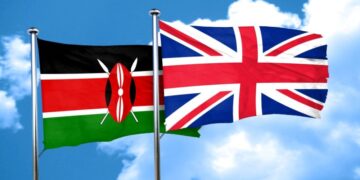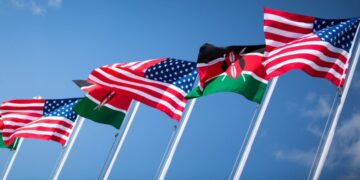International sanctions are political and economic decisions that are part of diplomatic efforts by countries, multilateral or regional organizations against states or organizations either to protect national security interests, or to protect international law, and defend against threats to international peace and security. The international community can use sanctions to change the behavior of a country or regime. They are among the toughest actions countries can take, short of going to war.
These decisions principally include the temporary imposition on a target of economic, trade, diplomatic, cultural or other restrictions (sanctions measures) that are lifted when the motivating security concerns no longer apply, or when no new threats have arisen. The UN Security Council has a mandate by the international community to apply sanctions that must be complied with by all UN member states.
They serve as the international community’s most powerful peaceful means to prevent threats to international peace and security or to settle them. UN sanctions should not be confused with unilateral sanctions that are imposed by individual countries in furtherance of their strategic interests. Typically intended as strong economic coercion, measures applied under unilateral sanctions can range between coercive diplomatic efforts, economic warfare, or as preludes to war.
Types of sanctions
There are several types of sanctions.
a. Economic sanctions
Typically a ban on trade, possibly limited to certain sectors such as armaments, or with certain exceptions (such as food and medicine). Economic sanctions can vary from imposing import duties on goods to, or blocking the export of certain goods from the target country, to a full naval blockade of the target’s ports in an effort to verify, and curb or block specified imported goods. Economic sanctions are distinguished from trade sanctions, which are applied for purely economic reasons, and typically take the form of tariffs or similar measures, rather than bans on trade.
b. Diplomatic sanctions
The reduction or removal of diplomatic ties, such as embassies. Diplomatic sanctions are political measures taken to express disapproval or displeasure at a certain action through diplomatic and political means, rather than affecting economic or military relations. Measures include limitations or cancellations of high-level government visits or expelling or withdrawing diplomatic missions or staff.
c. Military sanctions
Military sanctions can range from carefully targeted military strikes to degrade a nation’s conventional or non-conventional capabilities, to the less aggressive form of an arms embargo to cut off supplies of arms or dual-use items.
d. Sport sanctions
Preventing one country’s people and teams from competing in international events. Sport sanctions are used as a way of psychological warfare, intended to crush the morale of the general population of the target country.
e. Sanctions on the environment
Since the declaration of the United Nations Conference on the Human Environment, international environmental protection efforts have been increased gradually. Sanctions on the environment include both economic and political issues such as trade since these are all interdependent. The trade barriers and restrictions on trade are the key factors since they are engaged with the problems of endangered species, ozone-depleting chemicals and environmental laws.
f. Sanctions on individuals
These are sanctions primarily targeted at political leaders, military leaders, or citizens of a given country. Sanctions on individuals entails; preventing a person from traveling or doing business with a certain country, or freezing their assets in that country.
Reasons for sanctioning
Sanctions formulations are designed into three categories. The categories are used to differentiate between the political contexts due to the global nature of the act.
- The first category involves such sanctions that are designed to force cooperation with international law.
- The second category of design is those sanctions with the purpose to contain a threat to peace within a geographical boundary.
- The third category involves the United Nations Security Councils condemnation of actions of a specific action or policy of a member/non-member nation.
Most sanctioned countries
Here are the most sanctioned countries in the world.
| Rank | Country | No. of sanctions |
| 1. | Russia | 24,387 |
| 2. | Iran | 5,475 |
| 3. | Syria | 2,879 |
| 4. | North Korea | 2,233 |
| 5. | Belarus | 1,747 |
| 6. | Myanmar | 1,027 |
| 7. | Venezuela | 838 |
| 8. | Cuba | 208 |
| 9. | Afghanistan | 112 |
| 10. | Libya | 104 |


































































































































































































